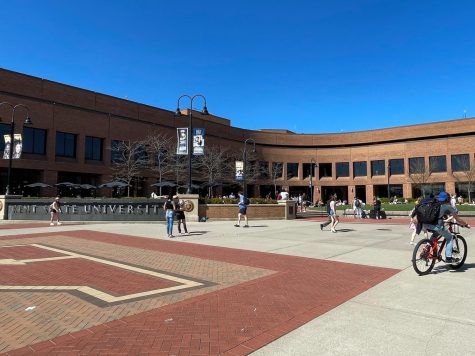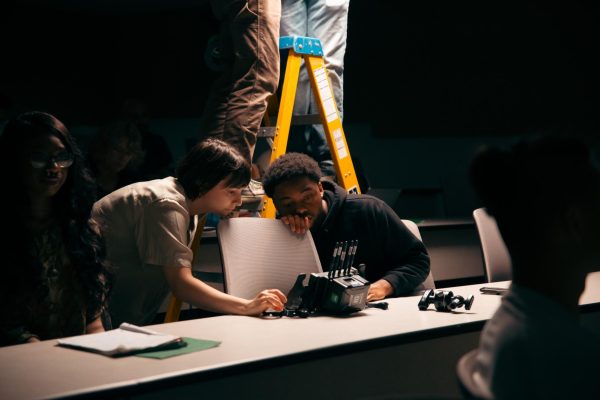Remaining awake through a great revolution
January 21, 2009
Martin Luther King Jr.’s ability to keep the black liberation movement’s achievements in perspective is one of his most overlooked qualities.
In 1968, Dr. King urged his listeners to stay awake through the revolutions unfolding at their time. At the time, the movement still confronted what seemed to be insurmountable obstacles despite the gains that civil rights activists had achieved.
However, Dr. King concerned himself with not just the evolving social problems plaguing the disaffected people in American society. He worried that one of the biggest challenges of the movement and the nation was to “develop the new attitudes” and find new, viable solutions.
This matter of Dr. King’s perspective, his capacity to shift his focus when needed and to look around the corner, resonates with us even more today. America seems to be caught in the swirling winds of social change.
Like Dr. King cited in 1968, there are a variety of contradictory air currents today: national economic instability, employment and housing insecurity, violence in Gaza and Barack Obama’s historical presidential inauguration. While there may be an optimistic and hopeful wind at our back, there are plenty of currents that threaten to knock us over.
But I think if Dr. King had lived to see his 80th birthday, he would agree that national and global poverty (and war) are the problems that we must confront.
The most recent number of people that the U.S. Census Bureau has reported as living in poverty is 37.3 million. Many of us are aware of the more than 40 million people who go uninsured in a given year. According to the United States Conference of Mayors’ Survey on Hunger and Homelessness, 25 of the largest cities in the U.S. have experienced a 12 percent increase in homelessness during 2007-2008.
One only wonders what those types of figures will look like in the next year. This is exactly why we need to keep everything, especially Dr. King’s legacy and the presidential inauguration of Barack Obama, in perspective.
While activists celebrated the passage of civil rights legislation during the 1960s and some people sought to discredit the movement in its aftermath, Dr. King continued to look around the corner.
The goal, shared with many other participants and leaders, was not just what people call opportunity, it was to ensure that every person living in the United States achieve a broader vision of human rights, including the right to adequate food, clothes, shelter, employment, and health care as a basis for life, liberty and the pursuit of happiness.
Dr. King’s perspective reflected his aims of developing new ways of seeing the world and acting in it. At times his outlook gets lost in the ritualistic chanting of the phrase, “judge one not by the color of one’s skin but by the content of one’s character.” Many of us tend to overlook a claim that he made in his 1967 book, “Where Do We Go From Here: Chaos or Community?”
“True compassion is more than flinging a coin to a beggar; it understands that an edifice which produces beggars needs restructuring,” Dr. King wrote.
Yes, those who participated in the various service projects on Dr. King’s birthday should feel proud to have done so. Everyone should be proud of the election of Barack Obama.
However, we should not forget Dr. King’s last challenge. We have to stretch our imaginations once again. We have to challenge ourselves to see the world through the eyes of the beggar rather than the view of the fortunate.
We must develop ways of addressing the problems from the bottom up, because there are more examples of poverty rising to the top than there are examples of prosperity trickling down. We cannot give in to political fatigue and fall asleep during this revolution.
Austin McCoy is a master’s candidate of history and guest columnist for the Daily Kent Stater.























